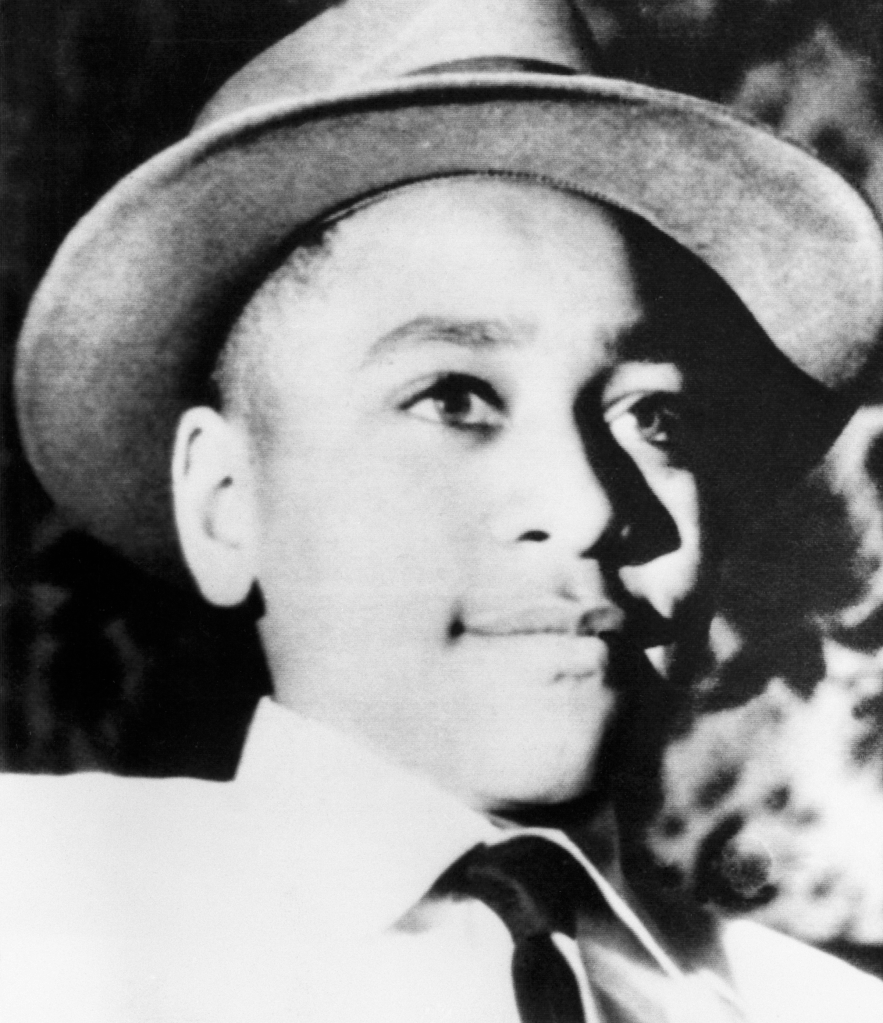
The Emmett Till Antilynching Act (HR 55) Passes into Federal Law FINALLY, on March 24, 2022
The bill aims to amend section 249 of title 18 of the United States Code to specify lynching as a hate crime act and anyone who conspires to commit such an act resulting in death or serious bodily injury shall be punished by up to 30 years in jail.
The bill passed in a Monday night vote by 422 votes to 3. The only three lawmakers to vote “no” on the Emmett Till Antilynching Act were Republican Reps. Andrew S. Clyde (GA), Thomas Massie (KY) and Chip Roy (TX).
Let’s get one fact clear: Lynching in America is A WHITE AMERICAN CRIME. Almost ALL lynchings that occurred in the United States were perpetrated by whites, and 70% of the victims WERE BLACK. The REAL reason that anti-lynching laws have not been passed since it was first introduced in 1900 by Rep. George Henry White of North Carolina, the only Black representative in Congress at the time, is simple: Making anti lynching a federal law ACKNOWLEDGES lynching as white racial terror, and it highlights that this nation is hypocritical when it says to the world that the US stands on the principles of equal protection and justice for all Americans. Now, 122 years since Rep. White first introduced the first anti-lynching bill to Congress, and unfortunately, only after more than 4,000 people of African descent have been murdered by extra-judicial mob violence, this law finally comes to realization.
Defining Lynching: According to Oxford dictionary, the word lynching means the illegal killing of somebody, usually by hanging, by a crowd of people and without a trial.
People have modified this definition and invented various ways to lynch an accused. Lynching includes mob-lynching, attacks by vigilantes, murder, attempt to murder, harassment, assault and even de-arresting a person from police custody.
The First state to have an Anti-Lynching Law of 1928
The Virginia Anti-Lynching Law of 1928, signed by Virginia governor Harry Flood Byrd Sr. on March 14, 1928, was the first measure in the nation that defined lynching specifically as a state crime. The bill’s enactment marked the culmination of a campaign waged by Louis Isaac Jaffé, the editor of the Norfolk Virginian-Pilot, who responded more forcefully than any other white Virginian to the increase in mob violence in the mid-1920s. Jaffé’s efforts, however, which earned him a Pulitzer Prize for editorial writing in 1929, came to fulfillment only after the state’s political and business leadership recognized that mob violence was a threat to their efforts to attract business and industry. Ironically, no white person was ever convicted of lynching an African American under the law.
The US has failed to pass anti-lynching laws 240 times.
Almost 5,000 people were victims of lynching in the United States between 1882 and 1968, seventy percent of whom were black, according to the NAACP. Many of these mob deaths occurred during the decades congress failed to pass preventative or punitive measures. While the last attempt to pass an anti-lynching bill was in 1965, the Senate issued an apology in 2005 for its past legislative failures.
In 2005, Congress issued an ‘apology’ to the victims of lynching and the descendants of those victims for the failure of the Senate to enact anti-lynching legislation. Also that year, Congress did not even introduce any anti-lynching legislation AFTER the apology.
Side note: Republican Reps. Andrew S. Clyde (GA), Thomas Massie (KY) and Chip Roy (TX) were the ONLY congressmen on record to vote against the Anti-lynching Law. Their main reasons?
Massie: “The Constitution specifies only a handful of federal crimes, and leaves the rest to individual states to prosecute,” Massie said. “This bill expands current federal ‘hate crime’ laws. A crime is a crime, and all victims deserve equal justice. Adding enhanced penalties for “hate” tends to endanger other liberties such as freedom of speech. He goes on to say that, “Lynching a person is already illegal in every state. Passing this legislation falsely implies that lynching someone does not already constitute criminal activity.”
Irony: In Pasadena, California, On June 6, 2016, Black Lives Matter organizer Jasmine Richards was convicted to state prison of a rarely used statute in California law originally known as “felony lynching.” Under California’s penal code, “felony lynching” was defined as attempting to take a person out of police custody. Richards was arrested and charged with felony lynching September 2015, after police accused her of trying to de-arrest someone during a peace march at La Pintoresca Park in Pasadena on August 29, 2015. Historically, the crime of lynching refers to when a white lynch mob takes a black person out of the custody of the police for the purpose of extrajudicially hanging them. In fact, the law’s name was so controversial that less than two months before Jasmine was arrested, California Governor Jerry Brown signed into law legislation removing the word “lynching” from the penal code. Richards’ lawyer, Nana Gyamfi stated that, “Her conviction is not only about punishing Jasmine Richards, but also is the lynching,” “So it’s really disgusting and ironic that she’s charged and convicted with felony lynching, when the real lynching that’s carried out is done in the same way it was carried out in the late 19th, early 20th century, where it’s supposed to punish those who dare to rise up against a system.”
Richards served 14 days of the 90 day sentence.
